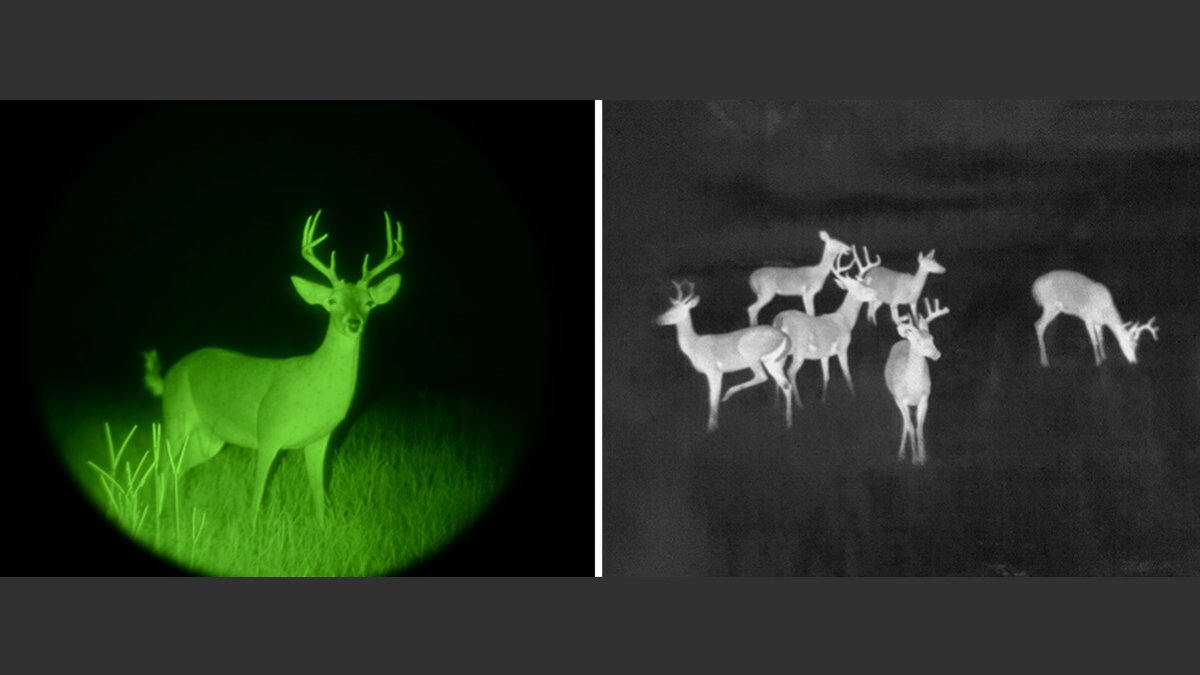We think one should begin by defining the terms and comprehending the technique before comparing thermal with night vision. Below are a few vital differences in night vision vs thermal review.
You might believe that night vision equipment function like that of any cameras. The only difference is that a night vision gadget would amplify whatever light it could avail of, absorb the light, and then show the colorless image.
Contrary, thermal imaging functions by calculating the heat signatures of different objects while comparing them simultaneously. Every item discharges some infrared light. Such light cannot be detected by the human eye. However, your apparatus could capture it for you. The screen would display the image when the sensor successfully identifies its radiation.
Unlike traditional thermal images, which have many colors, most devices feature eight alternative color palettes that you may select from based on your requirements.
Benefits of thermal imagery
Operating without light is the greatest benefit offered by thermal imagery. As a result, it has been made available at all times. You might wonder whether it ends the age-old controversy between thermal imagery and night vision. Rest assured, it does not, specifically contemplating that you could use the digital gadget day in and day out.
Two vital aspects to consider
Naturally, there is more. Thermal imagery, in comparison to night vision, has been a relatively new invention. Thus, two things follow:
- In one instance, regardless of the environment, a thermal device has the higher chances of producing a higher quality image;
- On the contrary, night vision has become considerably easier to develop, thereby making the equipment relatively cheaper.
Rest assured that everybody wishes to lay their hands on the best quality products without burning a considerable hole in their pockets. Consequently, the argument over choosing between thermal imagery and night vision enrages. The price of night vision equipment has not been the sole advantage though.
Consider the local laws
Local laws might also influence a hunter’s decision between night vision and thermal imaging gear. Because some nations restrict certain species or do not allow the employment of thermal imagery for hunting, we think it is important to uphold the law. It would be wise to begin researching and adhering to the local laws along with determining what is permitted before deciding.
Choosing the spending limit
Your capability to spend money on either of the two technologies would be your next consideration. After you have made up your mind to visit the nearby distributor, consider researching on the offered gadgets. It would cater to you with a basic understanding on things to expect. It would also provide you with adequate information and knowledge to choose the best equipment to meet your specific needs. Your satisfaction and the ability to accomplish your objective is of utmost importance.
Advantages of thermal vision overnight vision
The following table lists the advantages and disadvantages of thermal vision and night vision to help make things clearer. Since these are comparison lists, neither type of optic will have this benefit included since both let you’ll notice in the dark. When deciding whether to buy a thermal imaging device or a night vision gadget, you should keep these things in mind.
Thermal imagery
- See in any kind of brightness, both day and night.
- See-through dust, sand, fog, or smoke.
- See-through thin fabrics and leaves, follow any traces of leftover heat such as footprints, hands, etc.
- Never create an image for public consumption.
Night vision
- Natural picture
- More durable and dependable
- Less expensive With most models, a wider operating temperature range
- Broader field of view
- Increased battery life
Conclusion
While not the best for recognition, thermal imaging is excellent for detection. The converse is true for night vision; if an item is spotted, it is easy to identify the person or animal it could have been, but if they are hiding in cover or are standing still far away, it may be challenging to locate them.


